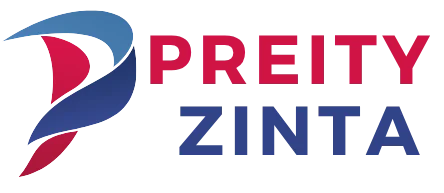Table of Contents
ToggleIn a world that’s more connected than ever, speaking just one language is like trying to win a race with one leg tied behind your back. The multilingual advantage isn’t just a trendy buzzword; it’s a game-changer. Imagine effortlessly switching between languages, impressing friends, and making connections that would leave monolinguals green with envy.
Understanding Multilingual Advantage
Multilingualism contributes significantly to cognitive flexibility. This advantage allows individuals to adapt their thought processes to different linguistic structures. Research has shown that bilingual and multilingual people often exhibit improved problem-solving skills and creativity. Enhanced cognitive functions lead to better multitasking abilities.
Socially, multilingual individuals can foster deeper relationships across cultures. They connect with a broader range of people, which enhances their social networks. Building rapport becomes more accessible when one can communicate in various languages. Such connections often present unique opportunities in both personal and professional environments.
Employment prospects for multilingual individuals also tend to improve. Employers increasingly value language skills as globalization expands. In competitive job markets, the ability to converse in multiple languages stands out. Candidates who speak several languages often gain advantages during hiring processes.
Additionally, multilingualism offers cultural insights. Understanding different languages opens doors to diverse perspectives and traditions. Engaging with other cultures promotes empathy and tolerance, necessary traits in today’s diverse society. Individuals who embrace multilingualism often experience enhanced cultural appreciation.
The multilingual advantage encompasses cognitive, social, and professional dimensions. Various studies underscore that proficiency in multiple languages equips individuals with essential skills for success in a globalized world. Embracing multilingualism can result in a richer, more fulfilling life experience.
Benefits of Multilingualism
Multilingualism offers numerous advantages, enriching individuals personally and professionally. Notably, it enhances cognitive flexibility, enabling better adaptation to new situations.
Cognitive Benefits
Cognitive advantages stem from multilingualism. Individuals who speak multiple languages demonstrate improved problem-solving abilities. Attention skills also sharpen, as these individuals learn to switch between languages effortlessly. Enhanced memory often accompanies language learning, as retaining vocabulary and grammar rules reinforces brain function. Creativity takes a boost, allowing multilingual individuals to think outside traditional frameworks. These cognitive benefits collectively improve academic performance and overall brain health.
Social Benefits
Socially, multilingual individuals can connect with a broader spectrum of people. Language skills break down barriers, allowing richer interactions across cultures. Deeper relationships often form as individuals engage in authentic conversations. Multilingualism fosters empathy, promoting understanding of diverse perspectives and traditions. Enhanced communication skills build stronger networks, leading to more opportunities socially and professionally. This enriches personal lives as individuals share diverse experiences and viewpoints.
Economic Benefits
Professionally, multilingualism offers a significant economic advantage. Employers increasingly prioritize candidates fluent in multiple languages, recognizing the value of diverse skill sets. Enhanced career prospects arise as multilingual individuals can access a wider range of job opportunities. In competitive job markets, language skills often set candidates apart. Companies benefit from employees who can communicate effectively with international clients. This contributes to organizational growth and success in global markets.
Challenges of Multilingualism
Multilingualism offers numerous advantages, but it also presents distinct challenges. Navigating these challenges requires awareness and understanding.
Language Proficiency
Language proficiency often becomes a complex issue. Individuals may struggle to achieve high proficiency in all languages spoken. As a result, they might experience difficulty expressing themselves clearly, particularly in professional or academic contexts. Inconsistent language use can lead to misunderstandings. People might inadvertently mix languages, creating linguistic interference. Maintaining strong proficiency requires consistent practice and immersion, which can be demanding in today’s fast-paced environment. Without regular use, one language may dominate, leading to reduced skills in others. Language attrition can occur, diminishing fluency over time.
Cultural Identity
Cultural identity frequently complicates multilingualism. When an individual speaks multiple languages, a sense of belonging may become fragmented. They might feel disconnected from their cultural roots or unable to fully embrace any specific identity. This disconnection can cause internal conflict, impacting self-esteem. Some individuals may struggle to navigate different cultural norms associated with each language. Balancing these aspects often leads to identity challenges, especially for those growing up in multicultural settings. Additionally, the pressure to conform to the language preference of peers can create tension, complicating the personal acceptance of one’s multilingual identity.
Real-World Applications
Multilingualism plays a vital role in various aspects of life, influencing education systems and enhancing workplace diversity.
Education Systems
Educational institutions increasingly recognize the importance of multilingual skills. Diverse curricula incorporate foreign language programs, resulting in improved cognitive development. Students exposed to multiple languages demonstrate heightened critical thinking abilities, fostering creativity. Additionally, language immersion programs yield benefits such as better academic performance and enhanced cross-cultural communication. A multilingual education environment trains students to appreciate cultural diversity, creating well-rounded individuals prepared for global engagement.
Workplace Diversity
In the workplace, multilingual employees significantly contribute to fostering an inclusive atmosphere. Companies prioritize hiring individuals fluent in multiple languages to effectively connect with a broader client base. Multilingual employees often excel in communication, leading to improved teamwork and collaboration across different cultures. Research shows that organizations with diverse linguistic capabilities achieve higher innovation levels and adaptability. Language diversity also enhances customer service quality, allowing companies to tailor their offerings to meet varied client needs in expanding global markets.
Embracing multilingualism opens doors to numerous advantages that enrich personal and professional lives. The ability to communicate across languages fosters deeper connections and enhances cognitive abilities. Multilingual individuals not only stand out in competitive job markets but also contribute to more inclusive workplaces.
While challenges exist in achieving proficiency and navigating cultural identities, the benefits far outweigh the drawbacks. By cultivating multilingual skills, individuals equip themselves with essential tools for success in an increasingly globalized society. Ultimately, the multilingual advantage leads to a more fulfilling and interconnected life experience.







